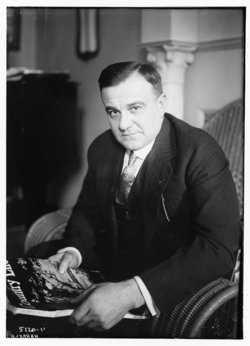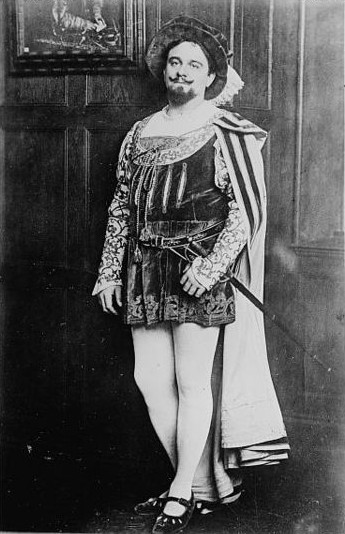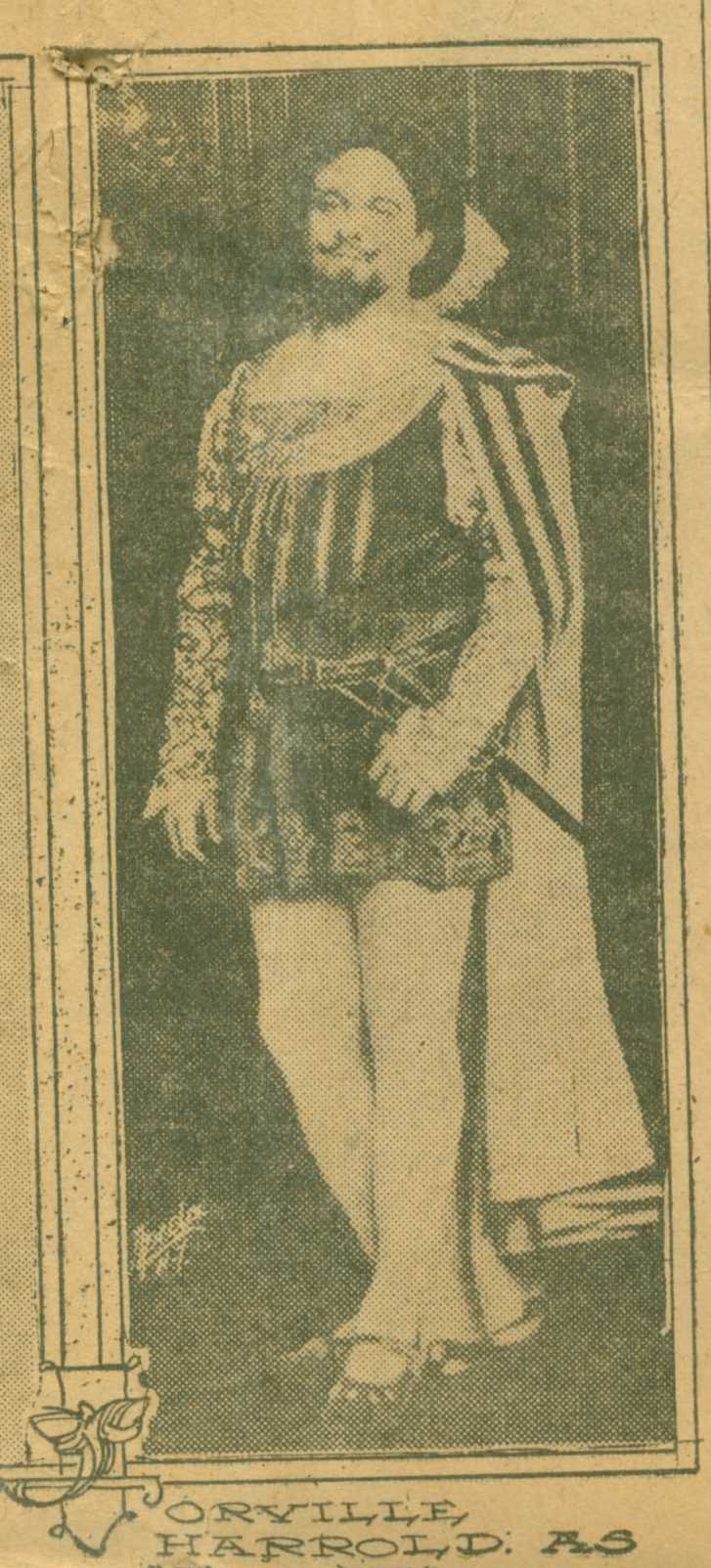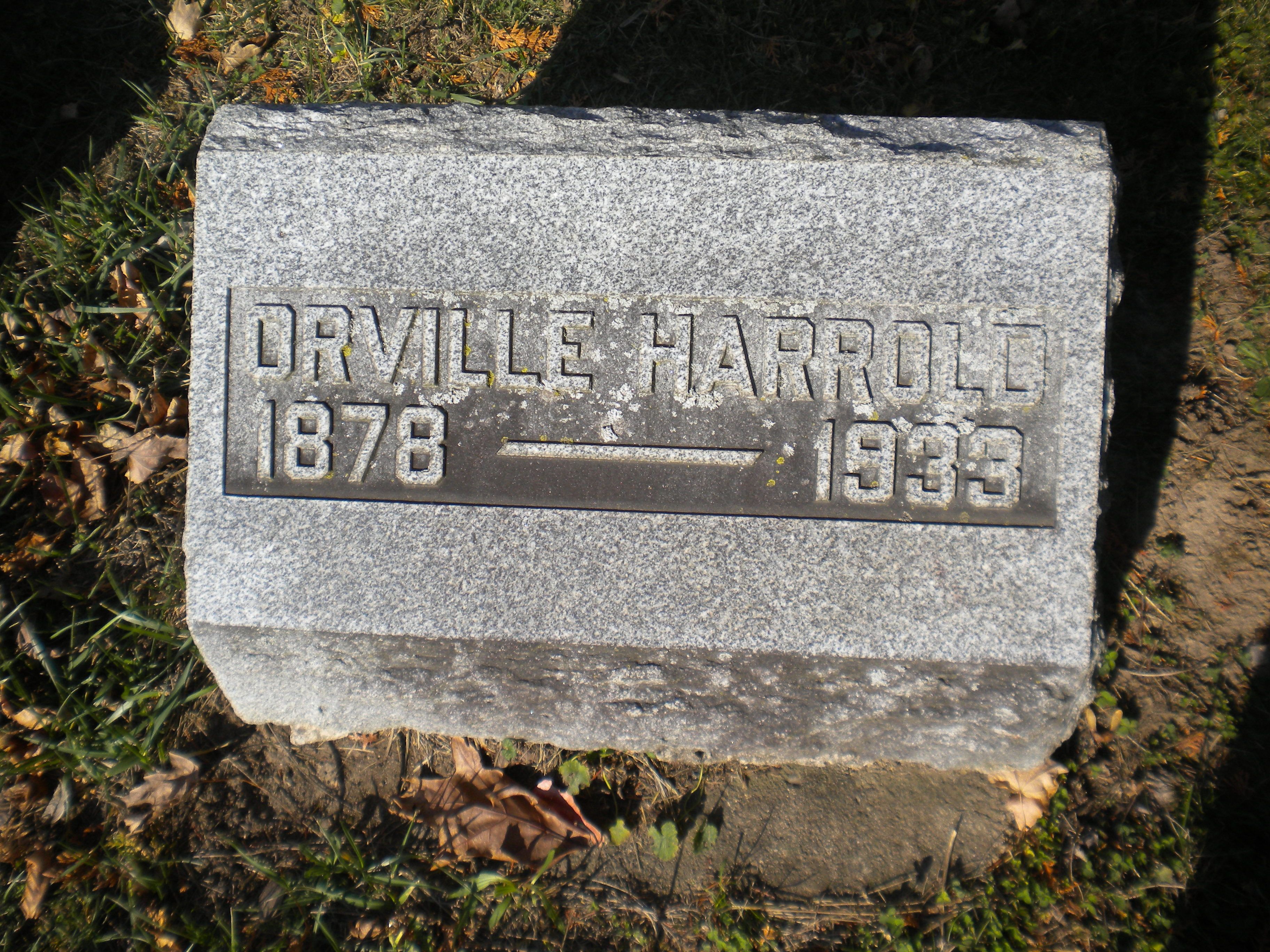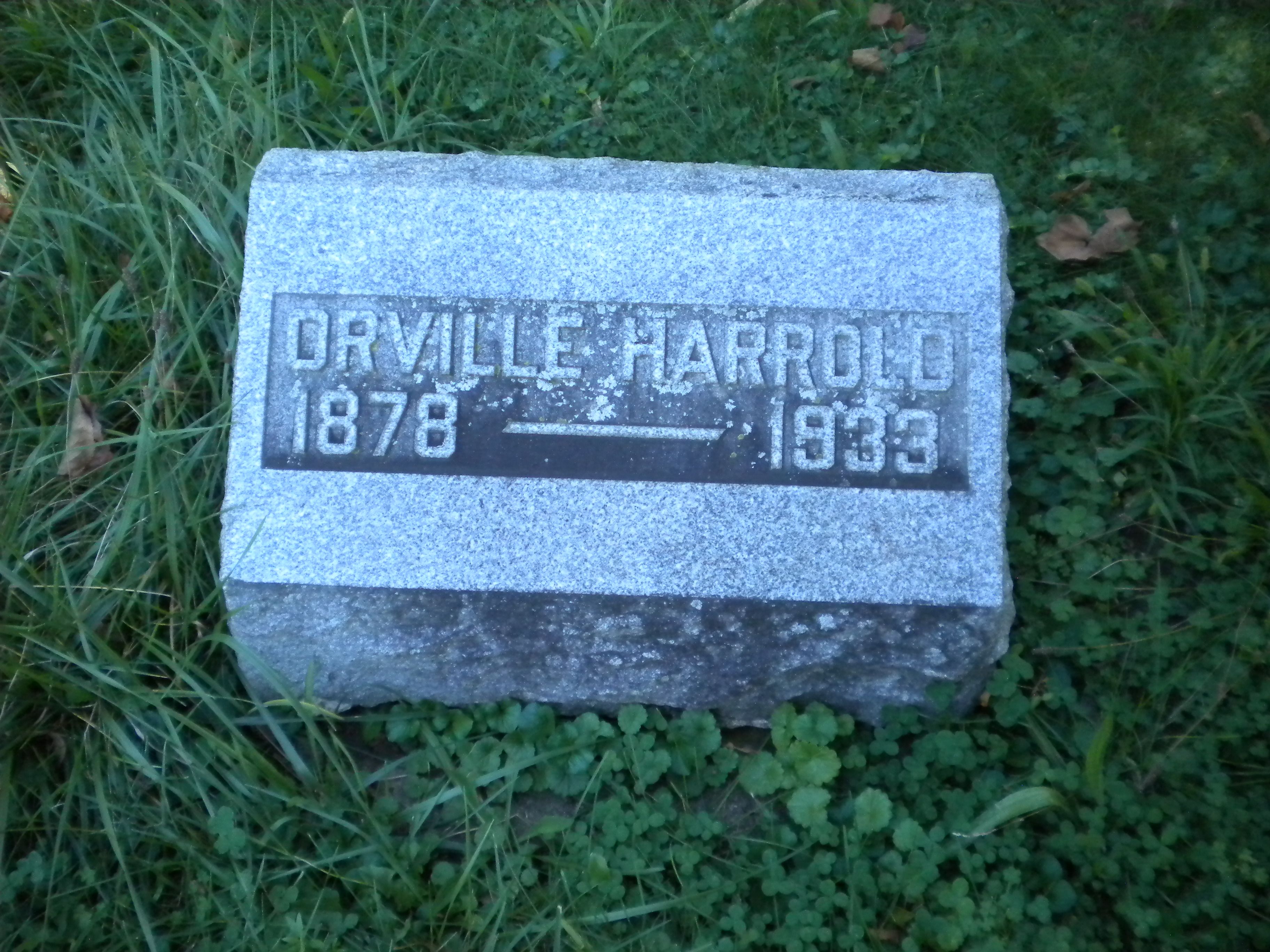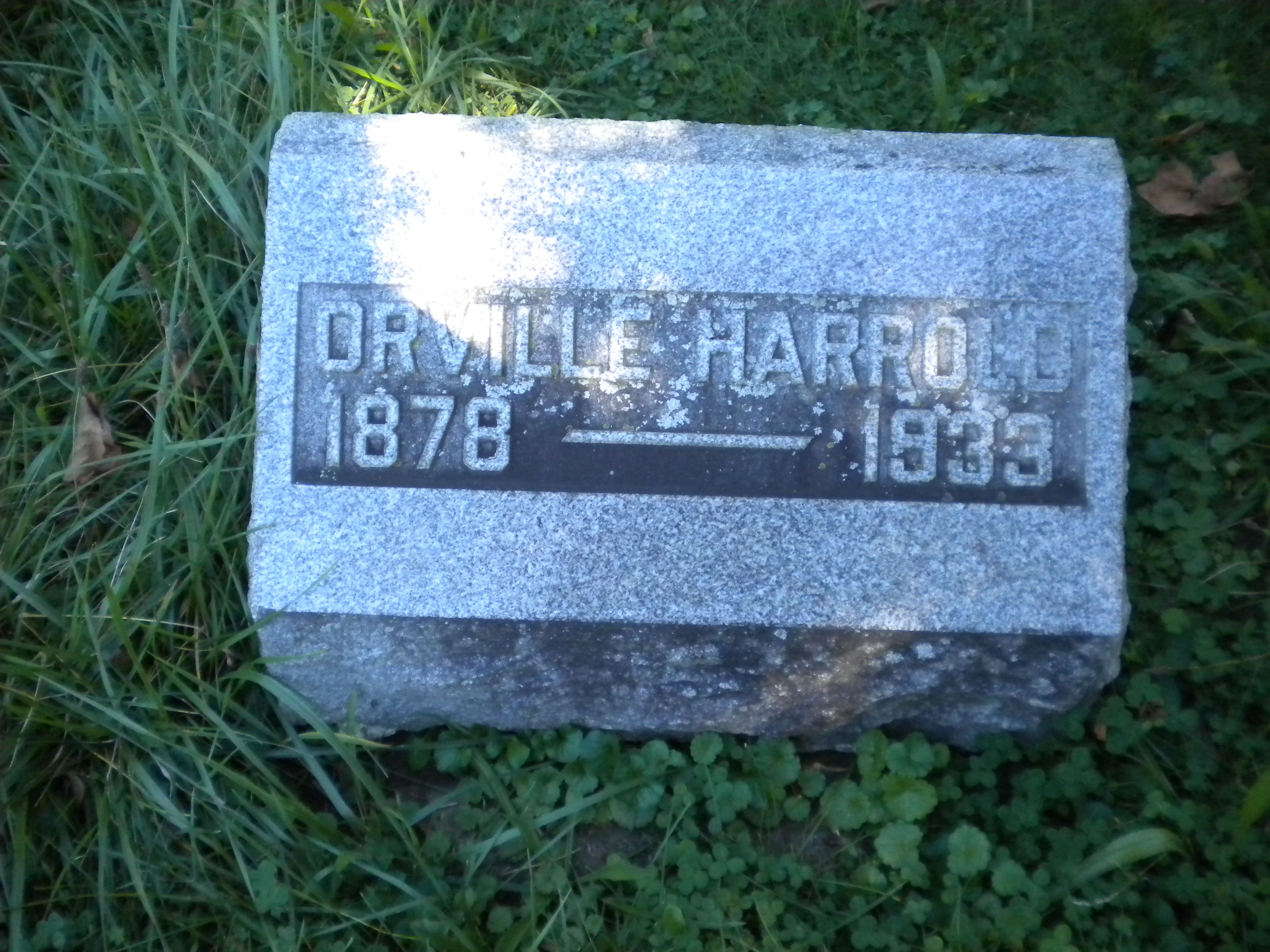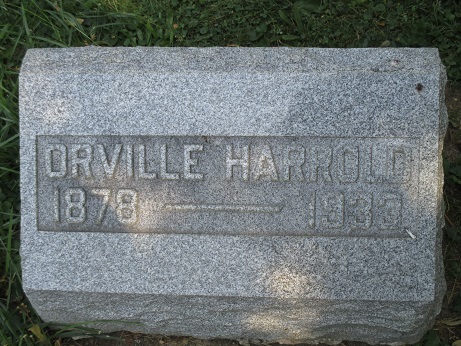Orville Harrold was born near Cowan, Delaware County, Indiana. He had a notable singing voice even as a child. He sang in church choirs, singing clubs, and traveled with a boys' choir in 1893 to the World's Fair in Chicago, where he was christened "the boy wonder of Muncie" for his performance there. He also played in a band in Muncie and took violin lessons, hoping one day to become a professional violinist. Those dreams did not come true, and as an adult Orville went to work for the Ball brothers glass factory. He later became a driver for a casket company and impressed his fellow workers by singing arias as he worked. In 1906 he was "discovered" by Mme. Ernestine Shumann-Heink, a noted contralto, who was on a concert tour of her own and heard Orville singing with the Apollo Club, an amateur singing group in Muncie. She encouraged him to pursue a singing career, and, through friends in Muncie who had contacts in New York City, an audition was arranged. Orville left Muncie to begin a career in vaudeville and the musical theater, a decision that would take him to the greatest heights in his profession, but would cost him his marriage to Euphamia Evaline Kiger, who would divorce him in 1913. In 1908 he toured with a production of "Wine, Women, and Song" at which time he caught the attention of Oscar Hammerstein and Oscar Sanger. This meeting resulted in a contract with Hammerstein's Manhattan Opera Company. During the year 1910 he sang with the Manhattan company and also with Hammerstein's Philadelphia Opera Company. He toured with these groups and was invited to join the Metropolitan Opera in New York in 1919. He performed with the Met until 1924, taking the lead tenor rolls in "La Boheme," "Parsifal", "Lohengrin", "Louise", "Tosca", "The Barber of Seville," and many other productions. He made solo tours of his own, singing in cities throughout the United States, sometimes accompanied by his daughter, Adelina Patti Harrold, who had inherited her father's gifts and who would go on herself to star in musical comedy in Los Angeles. After leaving the Met, Orville toured Europe, appearing at the London Opera House as a lead tenor, and returned to America to join the Century Opera Company for a United States tour. He also authored a book of 200 songs for children titled "Nimble Bunny," that concerned a musical adventure trip around the world. At the time of his death from a cerebral hemorrhage, he had planned to join his daughter in California for a series of radio broadcasts. Orville's career was short, compared to the other great tenors of his day, perhaps due to his lack of rigorous formal training at an early age.
Orville Harrold was born near Cowan, Delaware County, Indiana. He had a notable singing voice even as a child. He sang in church choirs, singing clubs, and traveled with a boys' choir in 1893 to the World's Fair in Chicago, where he was christened "the boy wonder of Muncie" for his performance there. He also played in a band in Muncie and took violin lessons, hoping one day to become a professional violinist. Those dreams did not come true, and as an adult Orville went to work for the Ball brothers glass factory. He later became a driver for a casket company and impressed his fellow workers by singing arias as he worked. In 1906 he was "discovered" by Mme. Ernestine Shumann-Heink, a noted contralto, who was on a concert tour of her own and heard Orville singing with the Apollo Club, an amateur singing group in Muncie. She encouraged him to pursue a singing career, and, through friends in Muncie who had contacts in New York City, an audition was arranged. Orville left Muncie to begin a career in vaudeville and the musical theater, a decision that would take him to the greatest heights in his profession, but would cost him his marriage to Euphamia Evaline Kiger, who would divorce him in 1913. In 1908 he toured with a production of "Wine, Women, and Song" at which time he caught the attention of Oscar Hammerstein and Oscar Sanger. This meeting resulted in a contract with Hammerstein's Manhattan Opera Company. During the year 1910 he sang with the Manhattan company and also with Hammerstein's Philadelphia Opera Company. He toured with these groups and was invited to join the Metropolitan Opera in New York in 1919. He performed with the Met until 1924, taking the lead tenor rolls in "La Boheme," "Parsifal", "Lohengrin", "Louise", "Tosca", "The Barber of Seville," and many other productions. He made solo tours of his own, singing in cities throughout the United States, sometimes accompanied by his daughter, Adelina Patti Harrold, who had inherited her father's gifts and who would go on herself to star in musical comedy in Los Angeles. After leaving the Met, Orville toured Europe, appearing at the London Opera House as a lead tenor, and returned to America to join the Century Opera Company for a United States tour. He also authored a book of 200 songs for children titled "Nimble Bunny," that concerned a musical adventure trip around the world. At the time of his death from a cerebral hemorrhage, he had planned to join his daughter in California for a series of radio broadcasts. Orville's career was short, compared to the other great tenors of his day, perhaps due to his lack of rigorous formal training at an early age.
Family Members
Sponsored by Ancestry
Advertisement
Advertisement
